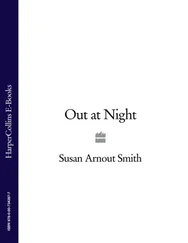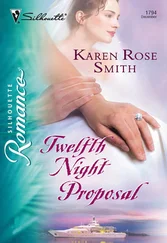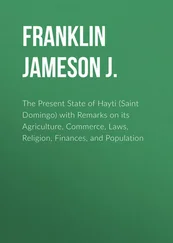No, they’d cracked him on the skull, no doubt about it. And while he’d been off swimming through the infinite, Balthazar’s unconscious body had been lifted onto a soldier’s horse, their waists tied together so he wouldn’t slip off. Why they’d put him on backward was a bit of a mystery. He could only assume it was some kind of insult. Something the Judean cavalry had dreamt up for its prisoners maybe. But whether it was tradition or an insult improvised at the last minute, it was effective. Besides being generally disorienting, it gave the soldiers behind him a clear shot at his face, which they used to mock him with words and gestures.
Also, having one’s nose directly above a horse’s ass wasn’t pleasant either.
But obscene gestures and the persistent smell of manure aside, Balthazar was alive. For the moment, anyway. He was almost certain they were headed toward Herod’s Palace in Jerusalem, where he’d be presented like the prize that he was and then killed in any number of terrible ways before the day was out.
If he could only turn around, Balthazar was sure he’d find Captain Peter riding at the front of the pack, grinning ear to ear, silently rehearsing his grand presentation to his king and counting the reward money in his head. Herod would do a little gloating, and then order Balthazar executed on the spot — that was, assuming the festering wound on his scalp didn’t kill him first.
As the sun baked the last drops of moisture out of his body, Balthazar replayed the day’s events in his aching head — a forensic accounting of every action and reaction. A study of what had gone wrong. Had it been the attempt to calm the bathing women instead of running away and finding another place to hide? Should he have taken on the ten soldiers behind the bathhouse instead of climbing up the side of the building? Stolen a horse instead of a camel? Should he have given Flavia that knock on the head when he’d had the chance?
I never should’ve gone to Damascus.
That had been the real error in judgment, hadn’t it. That was the decision that had ultimately led his nose to a horse’s ass. If he’d never gone to Damascus, he never would’ve heard about Tel Arad and its corrupt governor. But he had gone, chasing down his one weakness. That one elusive piece of treasure… the same piece he’d been chasing for years.
The pendant…
Balthazar had followed rumors of its existence all over the empire, and those rumors had always — always — proved to be a waste of time. He should’ve known Damascus would be the same. He should’ve stayed put in Crete, which had been good to him in so many ways. But whenever that old rumor found him, no matter how unsubstantiated or far away it was, Balthazar dropped everything and chased after his little flittering gold purpose in life.
That was the real tragedy here. Not that Balthazar would die. But that he’d die before he found it. Before he finished what he’d set out to do. What he’d sworn to do.
The eastern approach to Jerusalem was the real jaw-dropper. The one that led you over the Mount of Olives and into the Kidron Valley, the whole city revealing itself at once, rising from the desert, with the Great Temple in the foreground. But even here, from the north, Jerusalem struck an impressive sight.
Herod the Great may have been famous for his excessive cruelty and lavish lifestyle. He may have been decried for being a puppet of Rome and hated for his heavy taxation. But even his fiercest enemies had to admit — the man was one hell of a builder.
As a young king, Herod had learned that there was no scandal, no discontent that a few shiny new buildings couldn’t hush away. And over his thirty-year reign, he’d used this philosophy to transform much of Judea — building temples and coliseums, improving roads, and building aqueducts to carry fresh water to his subjects. But while Judea was his kingdom, Jerusalem was his showroom. The place he’d transformed from the little city of Solomon into one of the Marvels of the East.
Since he’d taken power, there’d seldom been a time when the city had fewer than three massive building projects under way. Many wouldn’t even be completed in his lifetime. It didn’t matter. Placating his Jewish subjects wasn’t Herod’s only priority. It wasn’t even his top priority. What Herod really wanted was Rome’s attention. He wanted to create a city so grand, so indispensable, that even the mighty Augustus would be proud to call it home. A city worthy of being called “the Rome of the East.” And he wanted his sons, his grandsons, and their grandsons to rule over it for all time, each generation praising the name of the visionary king who’d started it all.
And who was to say? In time, maybe his descendants would build a whole empire of their own. Maybe the children of Augustus would find themselves kneeling before the children of Herod, instead of the other way around.
Jerusalem was home to some 150,000 people. Still little more than a suburb when compared to Rome’s million-plus inhabitants, but it was on its way to becoming one of the grandest cities in the empire — right up there with Alexandria and Antioch. And with the census in full swing, its population had swelled to nearly twice its usual size.
The hordes barely noticed as Balthazar was paraded through the packed streets — streets that had changed so drastically, even in his lifetime. Where Balthazar remembered nothing but dirt, Herod’s amphitheater now rose more than a hundred feet off the ground, its stage home to the newest works from Rome and Greece. There was the Antonia Fortress, which Herod had named in honor of his friend and patron Marc Antony; the monument to King David, who’d ruled from this very city a thousand years before Herod’s birth; and, of course, there was Herod’s Temple — the city’s biggest, most stunning feature.
A city unto itself, the temple took up nearly half of Jerusalem’s eastern border. The outer walls measured 1,600 feet by 950 feet and rose 100 feet above the ground. Those walls supported a collection of inner courtyards and buildings, all of which surrounded the gleaming, white marble temple in the center. The biggest of these was the Court of the Gentiles, with its money changers and barbers; its priests scurrying about in their white robes; and merchants selling sacrificial animals, food, and souvenirs to the throngs of pilgrims.
At the center of it all was the temple itself — a white marble tower, from which the smoke of burning sheep and doves never ceased to rise. Unlike the noise and activity of the complex around it, the temple and its walled-in courtyards were strictly for worship and sacrifice, and strictly for the faithful. Non-Jews were expressly forbidden, on punishment of death, from setting foot inside. Even Herod would’ve risked a riot if he’d insisted on entering. For though he’d officially converted to Judaism when he took power, he was still considered an Arab by most of the local population.
The temple was the grandest flourish of Herod’s grand flourishes. But while he publicly boasted of the house he’d built to honor God, he was privately fondest of the house he’d built to honor himself : his palace in the Upper City.
Herod had palaces throughout Judea. In Caesarea near the Mediterranean coast and in Tiberias on the Sea of Galilee. In Masada and Jericho. Each one beautiful and grand. But even though some of these palaces were bigger than his home in Jerusalem, none of them approached its magnificence. Like the Great Temple, it was built on a raised platform, a rectangle measuring nearly 1,000 feet long and 200 feet wide, and surrounded by high walls and guard towers. Officially, it was built as a fortress to protect the Upper City, on Jerusalem’s west side, from invading forces. In reality, it was an offering from a mighty king unto himself. The towers were spaced evenly along the four walls. Each had a name. One for the king’s brother, one for a friend, and one for his beloved second wife, Mariamne.
Читать дальше












